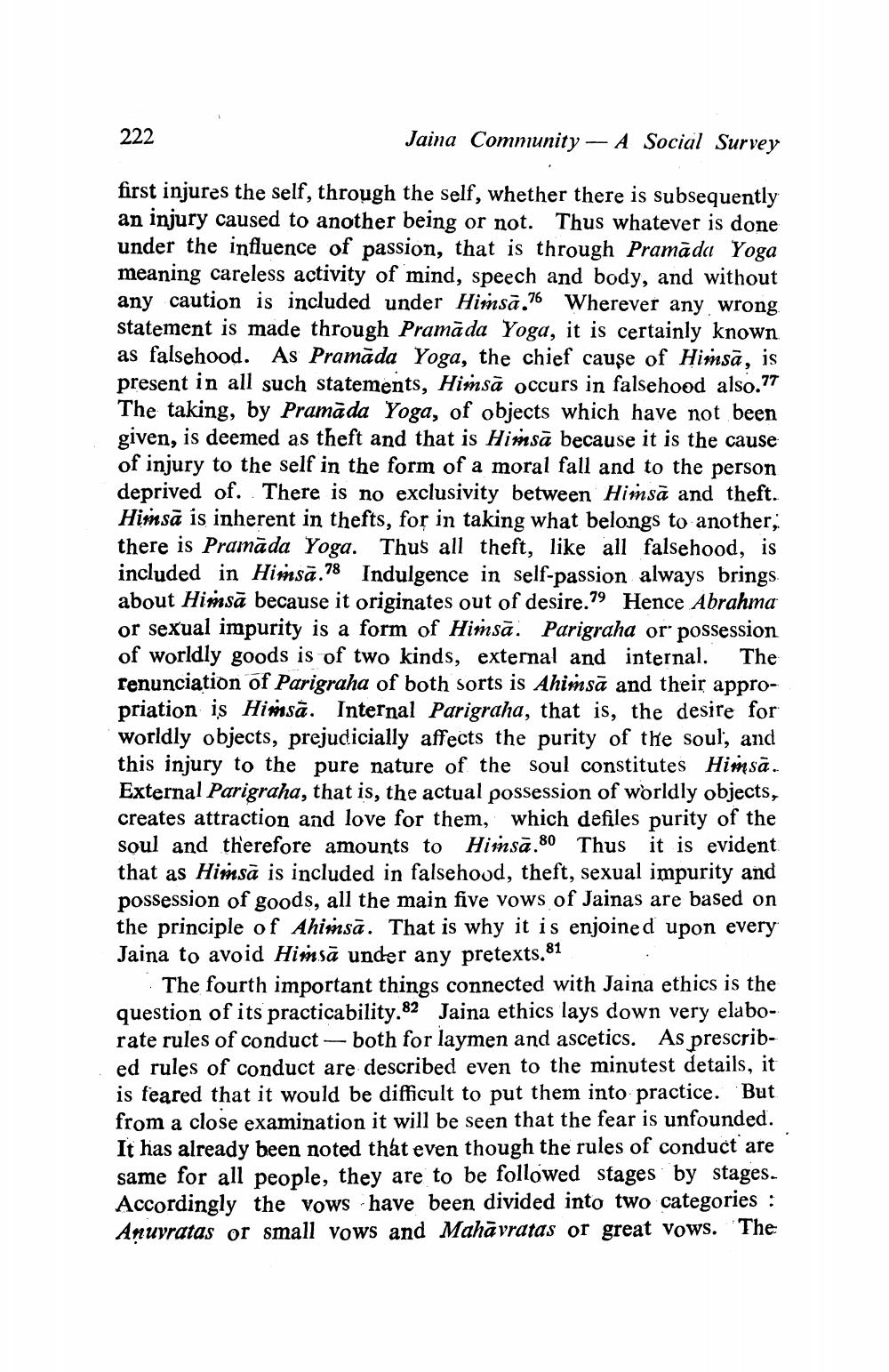________________
222
Jaina Community - A Social Survey
first injures the self, through the self, whether there is subsequently an injury caused to another being or not. Thus whatever is done under the influence of passion, that is through Pramāda Yoga meaning careless activity of mind, speech and body, and without any caution is included under Himsā.76 Wherever any wrong statement is made through Pramāda Yoga, it is certainly known as falsehood. As Pramāda Yoga, the chief cause of Himsā, is present in all such statements, Himsă occurs in falsehood also.77 The taking, by Pramāda Yoga, of objects which have not been given, is deemed as theft and that is Himsā because it is the cause of injury to the self in the form of a moral fall and to the person deprived of. There is no exclusivity between Himsā and theft. Himsā is inherent in thefts, for in taking what belongs to another, there is Pramāda Yoga. Thus all theft, like all falsehood, is included in Himsā.78 Indulgence in self-passion always brings about Himsā because it originates out of desire.79 Hence Abrahma or sexual impurity is a form of Himsā. Parigraha or possession of worldly goods is of two kinds, external and internal. The renunciation of Parigraha of both sorts is Ahimsā and their appropriation is Hinsă. Internal Parigraha, that is, the desire for worldly objects, prejudicially affects the purity of the soul, and this injury to the pure nature of the soul constitutes Himsa. External Parigraha, that is, the actual possession of worldly objects, creates attraction and love for them, which defiles purity of the soul and therefore amounts to Hiinsā.80 Thus it is evident that as Himsā is included in falsehood, theft, sexual impurity and possession of goods, all the main five vows of Jainas are based on the principle of Ahimsā. That is why it is enjoined upon every Jaina to avoid Himsā under any pretexts.81
The fourth important things connected with Jaina ethics is the question of its practicability.82 Jaina ethics lays down very elaborate rules of conduct — both for laymen and ascetics. As prescribed rules of conduct are described even to the minutest details, it is feared that it would be difficult to put them into practice. But from a close examination it will be seen that the fear is unfounded. It has already been noted that even though the rules of conduct are same for all people, they are to be followed stages by stages. Accordingly the Vows have been divided into two categories : Anuyratas or small vows and Mahā vratas or great vows. The




